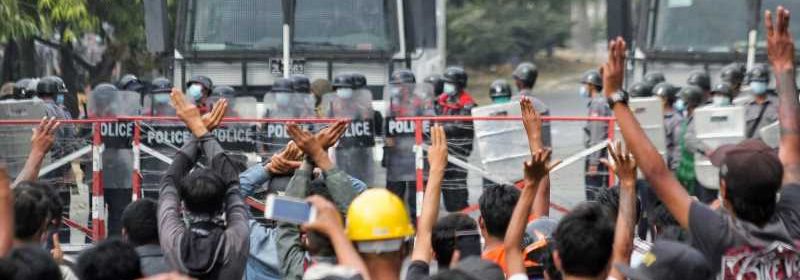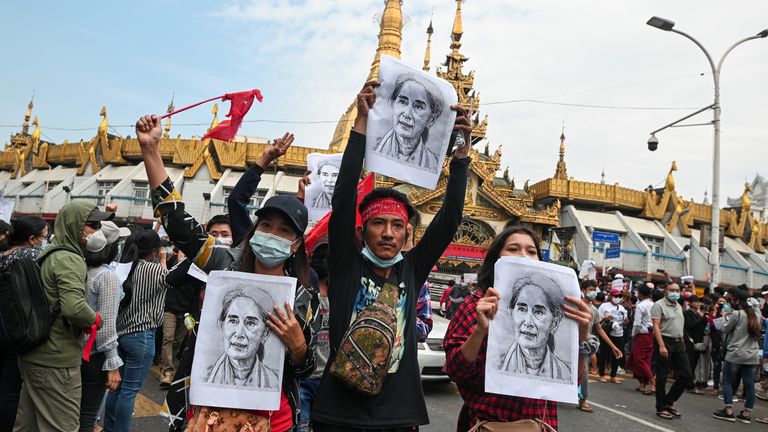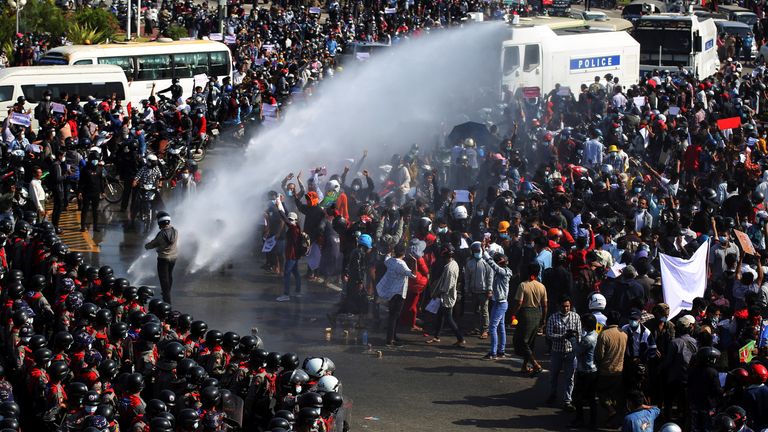Myanmar: Shooting of protesters ‘beyond the pale’, says UK foreign secretary

UK Foreign Secretary Dominic Raab has said the shooting of protesters in Myanmar is “beyond the pale”.
Mr Raab’s words came following reports that two anti-coup protesters in Mandalay had been killed by police.
One man was shot in the head and died at the scene while a second man was shot in the chest and died in hospital, according to local media.
Twenty people were also injured in the city’s protest, according to Ko Aung, a leader of the Parahita Darhi volunteer emergency service.
Mr Raab wrote on Twitter: “The shooting of peaceful protesters in Myanmar is beyond the pale.
“We will consider further action, with our international partners, against those crushing democracy and choking dissent.”
Earlier in Mandalay, some demonstrators had fired catapults at police and soldiers before police responded with tear gas and gunfire.
The first victim has not been named but the second victim was identified as Thet Naing Win, a 36-year-old carpenter.
Reuters news agency quoted his wife as saying: “I haven’t been involved in this movement yet but now I am going to…I am not scared now.”
The deaths occurred a day after 20-year-old Mya Thwate Thwate Khaing died, having being shot in the head at a protest in the capital Naypyitaw.
She had been on life support in hospital since being struck by a bullet on 9 February, and her death was the first among the protesters.
The army said one policeman has died of injuries sustained at a protest.
The demonstrations began in response to the military coup earlier in February, when soldiers took charge of the country claiming there had been “huge discrepancies” in last November’s election.
Britain, the US, Canada and New Zealand have announced limited sanctions, with a focus on the military leaders behind the coup.
Britain imposed sanctions on three generals on Thursday, saying they were responsible for serious human rights violations since the coup.
The protesters have been demanding the restoration of the elected government and the scrapping of a 2008 constitution that has given the army a major role in politics since decades of direct military rule ended in 2011.
Source: Read Full Article



